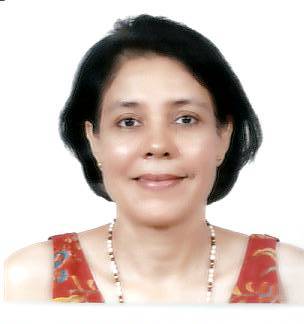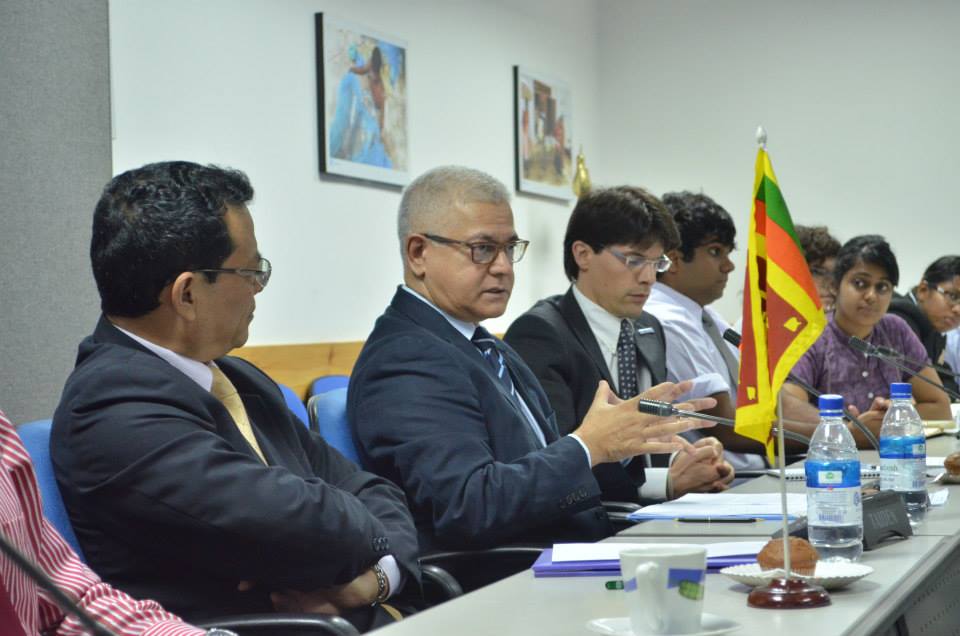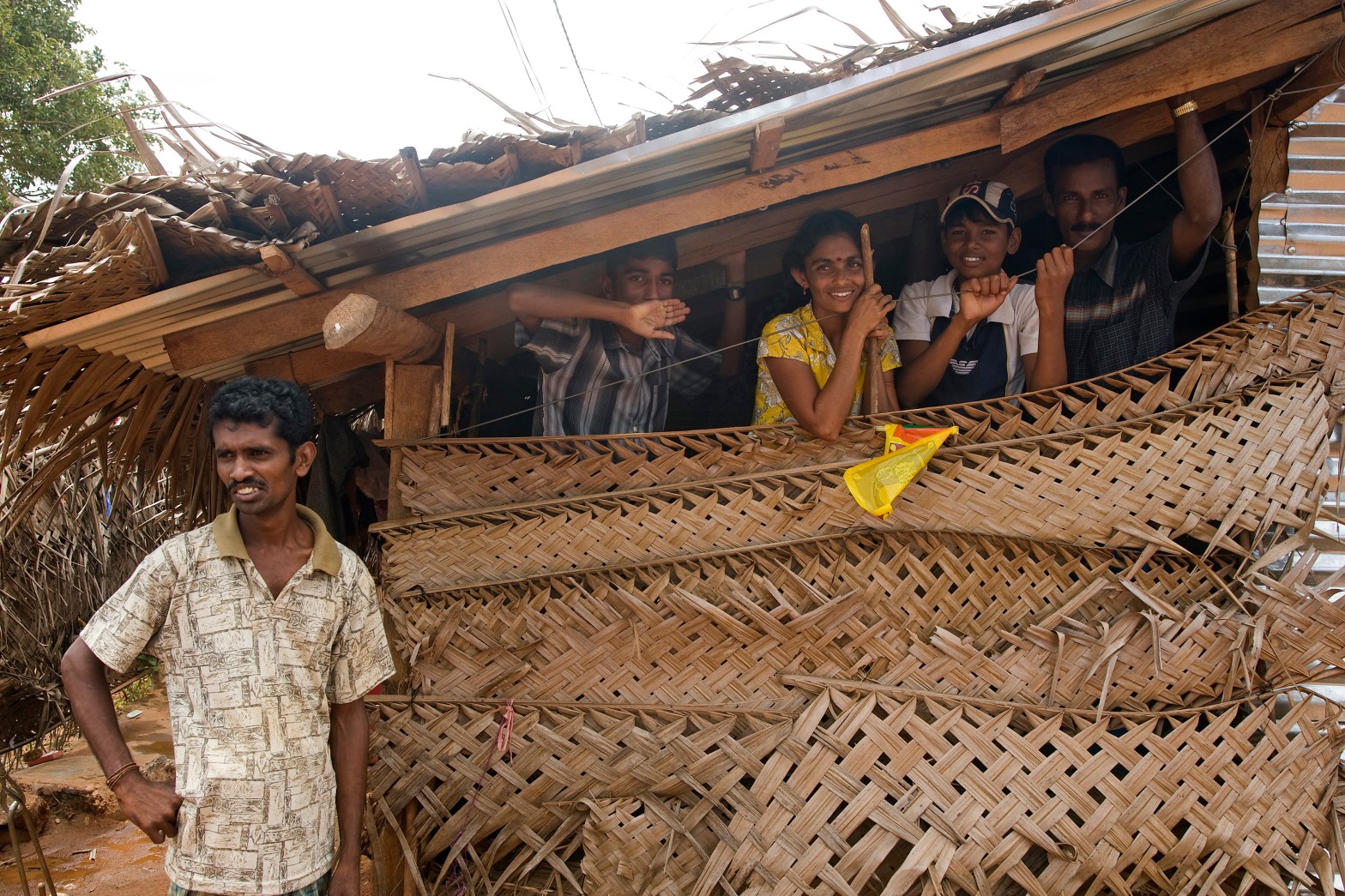The United Nations’ work is organized around peace and security, development and human rights. Peace and Development Advisers (PDAs) balance on those three pillars in roles that are relatively new but increasingly popular in responding to political tensions in countries around the world. We previously looked at the work of the PDA in Colombia. This week, we focus on Sri Lanka.
“I believe that in post-conflict countries, until you get the politics right you cannot get development right.” That’s one lesson Gita Sabharwal, a United Nations Advisor on Reconciliation and Development in Sri Lanka, has learned from years in the field.
For Sabharwal it is imperative to work in close partnership with different entities of the UN family “to bring to bear the political and development perspective in dealing with conflict prevention, resolution and early warning actions to sustain long-term peace.”

Based since 2013 in Colombo, Sabharwal is one of 34 “Peace and Development Advisers”, or PDAs, across the globe who work under a joint program of the UN Department of Political Affairs (DPA) and the UN Development Programme (UNDP).
She works with the dozens of UN agencies, funds and programmes that have been engaged in Sri Lanka for decades – known collectively as the UN Country Team (UNCT) – and national partners to support the ongoing reconciliation and peace-building efforts in the country.
On a typical day, she might meet with political stakeholders, government counterparts, civil society organizations or policy think tanks; write briefs analyzing political events and their implications for UN’s work; and interact with the UNCT to drive conflict-sensitive programming.
“The most rewarding aspect of being a PDA is to work with the [UN] Resident Coordinator (RC) to influence and inform the UNCT,” said Sabharwal, who considers herself a “common resource” to the agencies, funds and programs.
She also points out that her ability to share analysis on political developments and new conflict triggers with Member States and policymakers is not only useful, but also helps establish the UN as a “knowledge leader” in the country.
Nearly six years after the end of the Sri Lankan civil war, the UN continues to focus its work on reconciliation and conflict prevention, including strengthening social cohesion at the grassroots level among the Sinhalese Buddhist, Tamil Muslim and Hindu communities.
She also works on a project, with expertise from DPA’s Mediation Support Unit, to support the Ministry of Justice in developing a framework for land mediation based on the alternative dispute resolution system at work in Sri Lanka since the 1990s.
In DPA, her colleagues in the Asia and Pacific Division strategize around the ideas and suggestions in Ms. Sabharwal’s reports.
“One person makes a huge difference,” said Shin Umezu, Asia and Pacific Division Team Leader.
“Just having one person reporting to us on what’s happening, the flavour of the day, the mood in the air – is it ‘thick’, is it ‘light’ – that really just gives us the sense,” he continued.
The joint UNDP-DPA programme started some 10 years ago and APD has used it prominently in Fiji, as well as Timor-Leste and the Maldives, among others.
Normally, PDAs are deployed for short-term assignments, lasting from one to a few years in the country.
“We see some emerging problem perhaps, we deploy someone and then we make sure that this seed [of conflict] doesn’t grow into something,” Umezu said. “PDAs are our tools for early warning, and also for behind-the-scenes preventive diplomacy with the RC on the ground, with the full support from UNHQ.”
The joint project is still a work in progress, Umezu added, but “the fact that the number of PDAs globally is growing means, to us at least, that there is a great need out in the field, particularly by the RCs. And there is a good responsiveness from UNHQ.”

Christina Hajdu, who works closely with PDAs in DPA’s Asia and Pacific Division, noted that the value of the PDA is particularly apparent in countries where tensions have not yet risen to the level of crisis.
“You’re engaging in a context where stakeholders, including regional and international stakeholders, perhaps may not yet be attuned to the fact that it’s a situation of tension that is on a deteriorating trajectory,” she said.
And while raising awareness about potential crises could potentially ruffle some sensitivities, that is also an advantage of working with PDAs.
“You have to be able to engage early to better understand what may be the drivers of the tensions and the political complexities in the context,” said Hajdu.
Human Rights Up Front
The PDAs also contribute to the Human Rights Up Front initiative that Secretary-General Ban Ki-moon launched in 2013. The campaign’s purpose is to ensure the UN system takes early and effective action, as mandated by the Charter and UN resolutions, to prevent or respond to large-scale violations of human rights or international humanitarian law. In addition, PDAs ensure that the UN development engagement rests on a solid political foundation.
“That has been a particular strength of the Asia and the Pacific Division, where we do have many RCs and UNCTs who find themselves in complex situations in a non-mission setting, and PDAs enables them to operate in a much more politically savvy and nuanced way,” Hadju noted.
New deployments
In the next month or two, the Division will deploy a PDA to Thailand, and one to Papua New Guinea. There are also plans for a new PDA in the Maldives.
PDAs are just one type of political engagement that the Division utilizes on the ground. In Nepal, the UN Liaison Office continues work started by UNMIN, the UN Special Political Mission in the country that completed its mandate in January 2011.
Other types of political engagement in the region include a Liaison Officer to the Association of South-east Asian Nations (ASEAN) in Jakarta, Indonesia, and a Regional Partnership Officer in Bangkok, Thailand. Both work on the implementation of the UN Comprehensive Partnership. Not only the staff in the Asia and the Pacific Division of DPA, but also the Economic and Social Commission for Asia and the Pacific (ESCAP), located in Bangkok, and the RCs in the region oftentimes benefit from their work in furthering the partnership with ASEAN.
Main image: Internally Displaced Persons and residents of the Manik Farm Camp. Vavuniya, Sri Lanka. may 2009. UN Photo.
